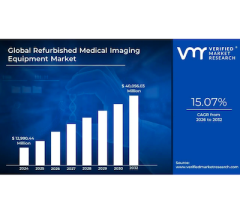April 28, 2016 — The American Society for Radiation Oncology (ASTRO) and radiation oncologists nationwide hailed the introduction of federal legislation that would drive alternative payment models, protect patients and reduce Medicare costs. The legislation would accomplish this by closing a costly loophole in the physician self-referral law.
ASTRO Chair Bruce D. Minsky, M.D., FASTRO, called on Congress to support healthcare delivery and payment reform by passing HR 5088, the Promoting Integrity in Medicare Act of 2016 (PIMA), introduced by Rep. Jackie Speier (D-Calif.) and Ways and Means Health Subcommittee Ranking Member Rep. Jim McDermott (D-Wash.).
The federal Ethics in Patient Referrals Act, also known as the physician self-referral law, prohibits physicians from referring a patient to a medical facility in which the physician has a financial interest. The law, which has been in effect since 1989, was designed to ensure that medical decisions are made in the best interest of patients without consideration of any financial gain that could be realized by the treating physician. Over the years, however, abuse of an exception to the law that allows physicians to self-refer for so-called “ancillary services,” including radiation therapy, has diluted the self-referral law and created a pathway for physicians to avoid its prohibitions and intent.
If passed, PIMA would restore the original intent of the Ethics in Patient Referrals Act, limiting the in-office ancillary services (IOAS) exception by prohibiting physician self-referral for four complex services — advanced imaging, anatomic pathology, radiation therapy and physical therapy. The bill also would increase penalties for improper referrals, create new compliance review procedures involving Medicare and the U.S. Department of Health and Human Services’ Office of the Inspector General, and strengthen provisions in the self-referral law that maintain access to care for rural beneficiaries.
Multiple studies, including reports published by the Government Accountability Office (GAO) and in the New England Journal of Medicine, have shown that physician self-referral leads to increased utilization of services that may not be medically necessary, poses a potential risk of harm to patients and costs the healthcare system millions of dollars each year.
Moreover, bipartisan groups including the Center for American Progress, the Bipartisan Policy Center and the AARP, have recommended closing the self-referral loophole. President Obama recommended closing the loophole in four consecutive budget proposals (FY 2013-FY 2017), and the Office of Management and Budget estimated this change would lead to Medicare program savings of $3.3 billion over 10 years.
Rep. Speier’s PIMA legislation would expedite delivery and payment system reform in a manner consistent with the Medicare Access and Children's Health Insurance Program (CHIP) Reauthorization Act (MACRA) passed in 2015. While MACRA and other policy changes will increase the numbers of physicians participating in alternative payment models, many may still participate in a traditional fee-for-service model that incentivizes over-utilization of healthcare services through self-referral. PIMA would ensure that only physicians participating in approved alternative payment models and other truly integrated medical groups focusing on quality could self-refer under the IOAS exception, thereby rooting out abuse in the traditional fee-for-service system while accelerating participation in alternative payment models.
“Self-referral abuse is at the heart of what’s wrong with the traditional fee-for-service system, and it undermines ASTRO-supported efforts to move Medicare toward quality- and value-based payment. Closing the self-referral loophole will accelerate participation in alternative payment models and fulfill the vision of a high-value payment system,” said Minsky. “We applaud Reps. Speier and McDermott for their leadership introducing legislation that drives needed payment reforms, protects patients and reduces waste.”
ASTRO is a partner in the Alliance for Integrity in Medicare (AIM), a coalition of medical societies committed to ending the practice of inappropriate physician self-referral and improving patient care by preserving valuable Medicare resources. In addition to ASTRO, AIM partners include the American Clinical Laboratory Association, the American Physical Therapy Association, the American Society for Clinical Pathology, the Association for Quality Imaging, the College of American Pathologists and the Radiology Business Management Association.
For more information: www.astro.org


 February 17, 2026
February 17, 2026 









